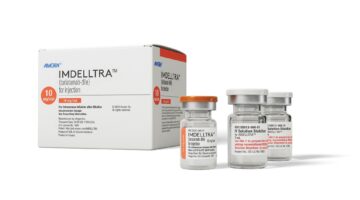Nonsteroidal anti-inflammatory drugs are one of the most prescribed drug classes, but their gastrointestinal toxicity is now widely cited and a market for less-harmful versions of these drugs has emerged over the past decade and a half. Now, a small biotech company thinks its GI-safe formulation of aspirin could be ready to take on the likes of Pozen and Horizon Pharma as early as next year.
NSAIDs bind to phosphatidylcholine (PC) in the lining of the GI tract, disrupt the lining’s acid-repelling properties and allow acid to pass through, which can cause erosions, ulceration and bleeding over time. PLx Pharma’s solution takes common NSAIDs and pre-associates them with a soy-derived PC so that they can reach the bloodstream without binding to the GI lining and disrupting its protective function.
PLx’s lead product is a new formulation of aspirin, which is taken regularly by 33 million Americans to prevent stroke and heart attack. According to CEO Ron Zimmerman, clinical studies have demonstrated that PL220, designed to deliver aspirin’s antiplatelet effect without its GI toxicity, is as effective as regular aspirin and reduced ulcers by 75 percent in subjects ages 50 to 75 who are taking 325 mg daily. The company now needs to complete more endoscopy trials to confirm GI safety, he said.

BioLabs Pegasus Park Cultivates Life Science Ecosystem
Gabby Everett, the site director for BioLabs Pegasus Park, offered a tour of the space and shared some examples of why early-stage life science companies should choose North Texas.
A second product is an ibuprofen formulation that’s also in the clinical stage. Zimmerman said it’s demonstrated bioequivalence with over-the-counter and prescription doses of ibuprofen for anti-inflammatory and pain relief, and a pilot endoscopy trial has delivered encouraging GI safety results.
But for now, PLx will focus on getting the aspirin formulation approved. “We’ve got to get one of these over the goal line as a small company, and then we can work with the platform technology,” Zimmerman said. “It is very possible that we may be able to see an NDA approval this time next year, but who knows.”
Coadministration of NSAIDs and a protein pump inhibitor (PPI) to block stomach acid is now the standard of treatment, Zimmerman said. Horizon Pharma and Pozen/AstraZeneca market combination drugs for arthritis, and Pozen by itself is developing an aspirin-PPI combination for prevention of cardiovascular disease that’s ahead of PLx’s drug. But in the past few years, research has turned up evidence that long-term acid suppression may lead to increased risk of Clostridium difficile, heart problems and bone fractures. And, Zimmerman said, Pozen’s drug uses a prescription dose of aspirin, whereas PLx is positioning its product to be over the counter.
“Our approach maintains the barrier that exists to our own acid, but just makes it easier for the drug to move through membranes without disrupting them,” Zimmerman said.
Adding to PLx’s outlook is mounting evidence that suggests aspirin may be a powerful tool in preventing cancer.
A spinout of the University of Texas Health Science Center, the company formed in 2003 and has been funded with grants from the National Institutes of Health, two venture capital firms and a handful of individual investors.














